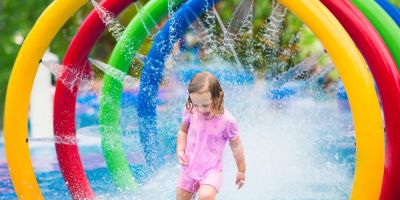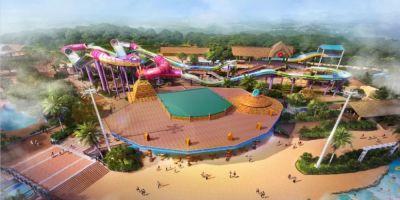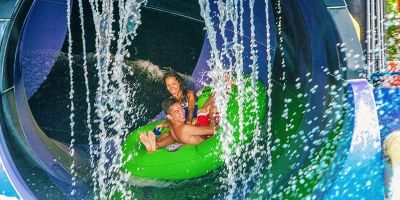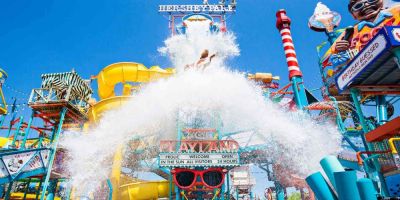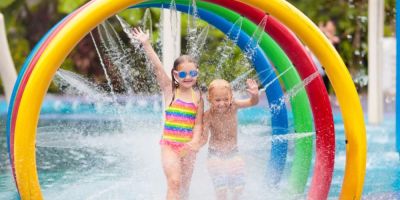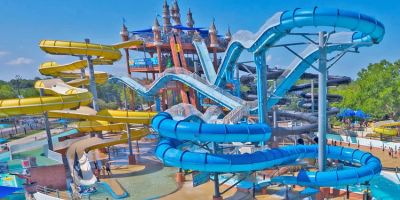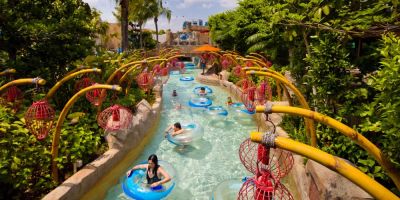
- why-height-requirements-matter-in-water-parks - Why Height Requirements Matter in Water Parks
- understanding-water-park-ride-height-requirements-for-children - Understanding Water Park Ride Height Requirements for Children
- types-of-rides-and-their-typical-height-guidelines - Types of Rides and Their Typical Height Guidelines
- parent-perspectives-and-real-experiences - Parent Perspectives and Real Experiences
- tips-for-preparing-your-kids-for-a-fun-and-safe-day - Tips for Preparing Your Kids for a Fun and Safe Day
- explore-family-friendly-fun-with-water-park - Explore Family-Friendly Fun with Water Park
1. Why Height Requirements Matter in Water Parks
Height requirements at water parks are not random rules meant to frustrate parents or disappoint kids — they’re safety standards built on rigorous engineering and medical research. Each ride is designed to accommodate specific body sizes and weights for safe movement, secure restraints, and impact management.
For children, especially those in active growth phases, these height requirements help reduce the risk of falling out of tubes, being thrown off balance, or hitting their heads in enclosed tunnels. Knowing the water park ride height requirements for children not only keeps everyone safe, but also helps parents plan the day more efficiently.

Rolling Hills Water Park
7660 Stony Creek Rd, Ypsilanti Township, MI 48197, USA
2. Understanding Water Park Ride Height Requirements for Children
2.1 How Heights Are Measured
Height is typically measured with shoes off and feet flat against a measurement board near the ride entrance. Many parks use color-coded wristbands for different height groups — such as under 36”, 36”-42”, 42”-48”, and over 48”. These correspond to ride zones, simplifying access and minimizing confusion.

Grayslake Spray Park
250 Library Ln, Grayslake, IL 60030, USA
2.2 Why Age Alone Isn’t Enough
Age doesn’t always match physical readiness. Two 5-year-olds may have vastly different heights and coordination levels. That’s why height is a more reliable standard. It reflects not only leg length but also torso positioning and reach — critical for rides with harnesses, sudden drops, or strong currents.
2.3 Common Restrictions for Different Ride Types
Smaller slides or splash pads often have no minimum height, while thrill rides and high-speed flumes usually start with 42” or 48” requirements. Multi-person raft rides may allow younger children if accompanied by an adult, but they’ll still enforce minimum height for shared safety.
3. Types of Rides and Their Typical Height Guidelines
3.1 Kiddie Slides and Splash Zones (No Minimum or 36”+)
Designed for toddlers and preschoolers, these areas focus on shallow water, low-speed slides, and interactive elements like spray jets and tipping buckets. Most are accessible to children under 36”, although adult supervision is often required.
3.2 Body Slides and Open Flumes (42”+)
These mid-tier attractions often require riders to navigate turns or mild drops at moderate speeds. The 42” height ensures the child can lie flat safely and brace for curves, twists, or sudden water jets.
3.3 Enclosed Tube Slides and Drop Slides (48”+)
These are the thrill rides — fast, enclosed, or vertical in nature. At 48” and above, children typically have the strength and height to handle sudden acceleration, dark environments, and complex movement patterns safely.
3.4 Wave Pools and Lazy Rivers (Varied or Supervised Access)
While many wave pools have no height limit, non-swimmers and young children are usually required to wear life vests. Lifeguards monitor behavior closely, especially near the deep end or where waves break hardest.
4. Parent Perspectives and Real Experiences
4.1 When Expectations Don’t Match Reality
One mom recounted planning a family trip around her 5-year-old son’s excitement for a big-kid ride — only to learn he was half an inch too short. While disappointing, she was relieved knowing the rules existed for safety. They ended up discovering new areas he loved even more.
4.2 Height Check Hacks and Why They Backfire
Some parents admit to trying tricks like thick-soled shoes or spiked hair to meet minimums. However, most parks measure without shoes and flatten hair. Staff are trained to be firm. Risking a ride that a child isn’t ready for isn’t worth the possible trauma or injury.
4.3 Unexpected Joys from Age-Appropriate Rides
Several parents shared that their children had the most fun on smaller attractions designed just for their age group. They gained confidence, made friends, and enjoyed having spaces where they didn’t feel left behind or overwhelmed.
5. Tips for Preparing Your Kids for a Fun and Safe Day
5.1 Check Ride Requirements Before You Go
Most major parks publish height and safety guidelines on their websites. Review them ahead of time so you can set expectations and plan which areas to visit first — avoiding unnecessary disappointment or long detours.
5.2 Bring Proper Swimwear and Footwear
Many parks require snug swimwear for safety and hygiene reasons. Water shoes can help kids move comfortably across hot concrete and slick surfaces, reducing the chance of slips — especially in areas with zero-depth entry pools.
5.3 Use Wristbands and Park Maps Wisely
Once you receive your child’s height-color wristband, cross-check it with the ride guide and map out your route. This makes transitions smoother and helps kids anticipate the next exciting activity — while staying within safe zones.
6. Explore Family-Friendly Fun with Water Park
Planning a water park trip should be a day of laughter, not logistics. At Water Park, we make it easy by clearly displaying water park ride height requirements for children and offering wristbands that guide families to the right experiences. From toddler-safe splash zones to adrenaline-charged slides for teens, our attractions are designed to include everyone — safely.
Our staff are trained to support young guests with kindness, and our facilities are built with comfort, visibility, and fun in mind. If you're looking for a place where fun meets safety, Water Park is your go-to destination. Let’s make those splash-filled memories unforgettable — and confidently safe.


